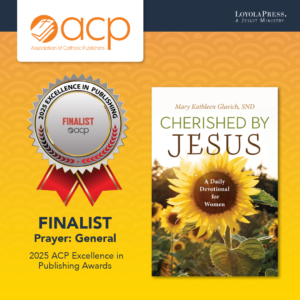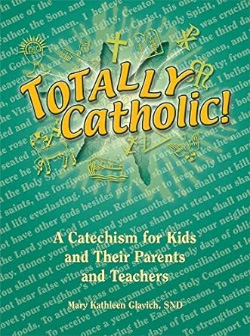 We’ve just celebrated the Feast of Christ the King, the climax of the church year. My religious province in Chardon, Ohio, was named Christ the King and used to celebrate this day in grand style, complete with the majestic song “Christus Vincit” in four-part harmony. In those days the feast occurred in October when the surrounding countryside was ablaze with autumn leaves. In my religious community, when the time came to receive a religious name, it was the custom to submit three name choices, usually those of saints. The general superior in Rome would then select your name, and you would celebrate your name day on the saint’s feast day. Because I had my heart set on having the Feast of Christ the King as my name day, I came up with thirty-two names that stood for him. Some were unique, such as Inri (for the sign on the crucifix, the acronym for Jesus of Nazareth, King of the Jews). Rana, which is “king” in modern Indian, made my list, until I discovered it meant “frog” in Latin!
We’ve just celebrated the Feast of Christ the King, the climax of the church year. My religious province in Chardon, Ohio, was named Christ the King and used to celebrate this day in grand style, complete with the majestic song “Christus Vincit” in four-part harmony. In those days the feast occurred in October when the surrounding countryside was ablaze with autumn leaves. In my religious community, when the time came to receive a religious name, it was the custom to submit three name choices, usually those of saints. The general superior in Rome would then select your name, and you would celebrate your name day on the saint’s feast day. Because I had my heart set on having the Feast of Christ the King as my name day, I came up with thirty-two names that stood for him. Some were unique, such as Inri (for the sign on the crucifix, the acronym for Jesus of Nazareth, King of the Jews). Rana, which is “king” in modern Indian, made my list, until I discovered it meant “frog” in Latin!
 In the end, I was called Kirene, a name I derived from the Chi-rho, the Greek symbol for Christ created from the first three letters of Christ. Eventually most Sisters returned to our baptismal names because our vows as consecrated religious are rooted in that sacrament. But I retained the Feast of Christ the King as my name day. I reasoned that when I was baptized I became committed to Christ. My favorite antiphon was “My heart sings with joy when I tell the good new. My life belongs to the king. Alleluia, alleluia, alleluia.”
In the end, I was called Kirene, a name I derived from the Chi-rho, the Greek symbol for Christ created from the first three letters of Christ. Eventually most Sisters returned to our baptismal names because our vows as consecrated religious are rooted in that sacrament. But I retained the Feast of Christ the King as my name day. I reasoned that when I was baptized I became committed to Christ. My favorite antiphon was “My heart sings with joy when I tell the good new. My life belongs to the king. Alleluia, alleluia, alleluia.”
Today, in general, kings exist only in history books and fairy tales. They were the supreme rulers of countries who administered their realm, enacted laws, and protected and judged their people. Christ is the most supreme ruler. In the book of Revelation, he is called “King of Kings” and “Lord of Lords.” Christ rules over much more than one country: He is king of the entire universe. Not only did he create it, but he wrested it from Satan by dying and rising. In the past people gave their lives for their king; our King died for us.
Some kings were ruthless, power-hungry, arrogant, and domineering. Jesus is the exact opposite of them. He is the Prince of Peace and the Good Shepherd. He could instruct us: “Learn from me, for I am meek and humble of heart” (Matthew 11:29). Those who belong to his kingdom—both here and hereafter—are those who promote his values: peace, justice, mercy, and love.
Subjects owed their king loyalty, obedience, and taxes. What Christ the King desires from us is nothing less than our lives and our love. According to a parable Jesus told, when our King comes as judge at the end of time, he will separate people into two groups. Those who performed acts of mercy, such as feeding the hungry and clothing the naked, will be welcomed into his kingdom of heaven. As St. John of the Cross said, “In the evening of life, we will be judged on love alone.”
At St. Dominic, the parish where I work as an honorary “pastoral associate,” there are plenty of opportunities to insure that at the end of time we find ourselves in the right group. Project Serve reaches out to the needy in various venues. I counted nine of them. At Masses, parishioners are invited to place donations in the sanctuary or contribute money in the collection baskets for worthy causes. We support Chiltiupan, one of the poorest villages in El Salvador. Chances are, your parish offers similar opportunities.
On Thanksgiving we are asked to show our thanks by sharing with those who are not as fortunate as we are. We will receive requests through the mail and over the phone. Soon the Salvation Army will be ringing bells at store entrances. Our responses will indicate whether or not we are kingdom people.
In my religious community, our meal prayers include this one: “King and center of all hearts, rule thou supreme in our community and in every heart. Thine we are, O Lord, and thine we will be.” You might adopt an adapted version of this.
What signs are there that Christ is your king? What are you doing to promote his peaceful kingdom?









